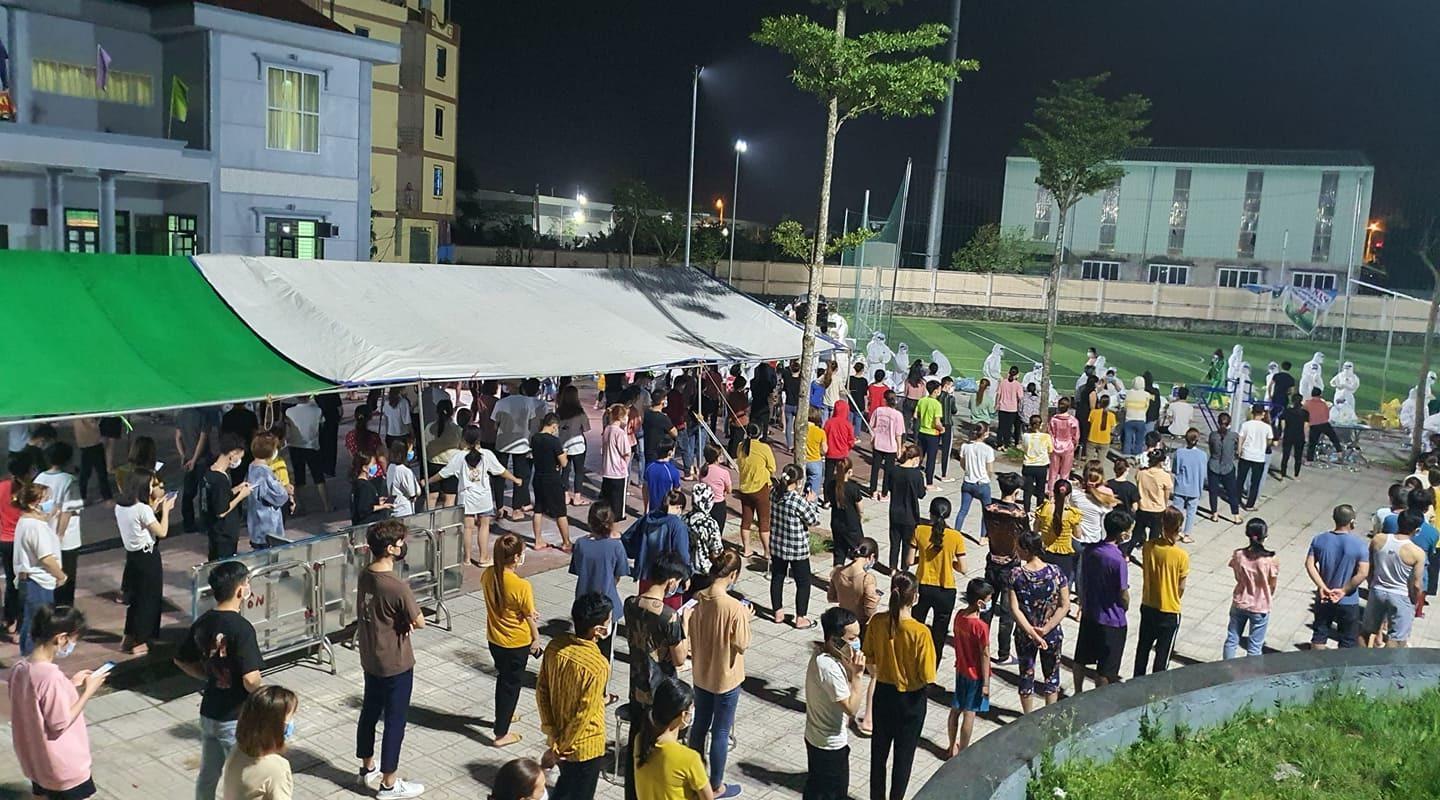Recently, some businessmen told me that they are willing to contribute money to the Government to buy vaccines against the SARS-CoV-2 virus if the Government launches a fund to supplement the budget shortage.
I trust them because I and so many others want to contribute. Last August, after only a few months of launching, the Vietnam Fatherland Front raised VND2,200 billion from organizations and individuals across the country to purchase medical equipment and supplies for epidemic prevention.
The national spirit, the solidarity of the state and the people have been shown not only during this pandemic, but also in many other periods when the country faced historical twists and turns.
The Ministry of Finance last week reported to the Government the establishment of a Covid-19 vaccine fund. Accordingly, Vietnam needs about VND25.2 trillion to buy 150 million doses of vaccines to vaccinate about 75 million people. Of which, VND16 trillion will be from the state budget and VND9.2 trillion mobilized from local budgets and contributions from domestic and foreign enterprises, organizations and individuals.
The amount needed to buy vaccines is not too high compared to the VND34.5 trillion provision, equivalent to about 1.5% of Vietnam's budget expenditure, which is VND1,687 million this year.

About 9,000 people in Nui Hieu village, Quang Chau commune, Viet Yen district of Bac Giang province are tested for Covid-19 on one evening.
If there is the contribution from organizations and individuals, Vietnam will have abundant financial resources to buy vaccines amid the fierce competition among countries.
This is a timely initiative of the Ministry of Finance because the fund will create a public-private partnership. In addition to the contributions of businesses and organizations, each citizen can contribute a part, or all, for his or her injection. Those who have better economic conditions can contribute more to the injections of others in need.
Despite the efforts of many people, there is still a long way to go to buy enough vaccines. Therefore, even though we have a new anti-Covid strategy of 5K message + vaccines, until there are enough vaccines, Vietnamese will still have to perform the 5K message. It is very necessary in addition to the Government's efforts to "decisively implement measures for rapid detection, zoning, timely isolation, rapid tracing, testing, screening, active treatment, to prevent the disease from spreading on a large scale”.
In that context, there are interesting proposals. At the meeting of the National Steering Committee for Covid-19 Prevention and Control on May 19, some members of the Steering Committee and experts said that some people thought that massive testing for SARS-CoV-2 should be encouraged, and some even suggested a "5K message + vaccine + testing" strategy instead of "5K + vaccine".
However, Deputy Minister of Health Tran Van Thuan said that the policy of the Ministry of Health does not encourage people to have SARS-CoV-2 screening test because if the test results are negative, it will cause negligence in epidemic prevention. This is a confusing policy.
Notice No. 116/TB-VPCP of the Government Office on "Conclusion of Prime Minister Pham Minh Chinh at the Government meeting on Covid-19 epidemic prevention and control" emphasized the 5K message + vaccine; and screening test on a large scale (mobilize resources to increase testing capacity, ensuring fast, accurate and effective testing requirements).
The announcement also emphasized the role of the people: "In particular, the epidemic prevention and control task has attracted and mobilized the participation of a large number of people, gaining the trust and support of the overwhelming majority of the people."
The Prime Minister has affirmed that it is necessary to mobilize resources to increase testing capacity and promote the responsibility of the people in fighting the epidemic. So, is there a policy of not encouraging people to take a Covid test?
We have to admit the fact that the testing capacity in many places is still very modest. For example, Bac Giang province is the country’s epidemic epicenter at present, but the testing capacity is only 1,500 cases per day, too small compared to the population of 1. 8 million.
According to a report of the Ministry of Health, as of May 18, 3,324,043 Realtime RT-PCR tests had been done in the country, equivalent to 4,398,533 people tested.
Thus, the testing capacity of the health sector is far from the needs of nearly 100 million people. People spending their own money for testing can help generate revenue for health facilities so that they can quickly improve their testing capacity while protecting people’s health and the community.
In many countries, Covid test strips are sold in supermarkets, people can go to State health centers for free tests and many schools give free test strips to students.
The Ministry of Finance is encouraging people to contribute to an anti-Covid-19 fund. People are willing to contribute to anti-epidemic programs launched by the Vietnam Fatherland Front, so why don't we encourage them to test themselves to protect themselves, their family and society? Why should we worry that this would cause people to act negligently in epidemic prevention?
[5K message: Khau trang (facemask)- (Khu khuan) disinfection- (Khoang cach) distance- (Khong tu tap) no gathering – (Khai bao y te) health declaration].